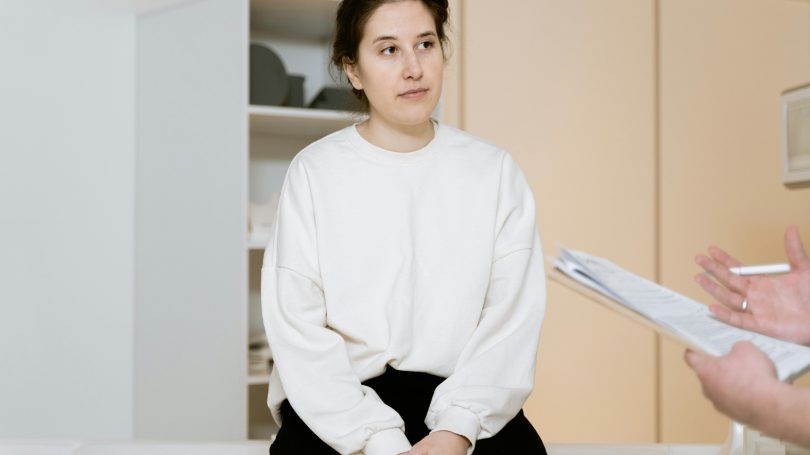
- Photo by
- MART PRODUCTION from Pexels
The lack of awareness and societal understanding surrounding secondary infertility can contribute to feelings of isolation. It is important to acknowledge these emotions and seek out supportive resources to navigate this journey with resilience and hope.
If conception does not occur within six to twelve months, depending on age, it may be time to consult a fertility specialist. A reproductive endocrinologist can evaluate potential causes of secondary infertility through diagnostic tests that assess ovulation, hormone levels, uterine health, and sperm quality. Understanding the root cause allows for personalized treatment recommendations and targeted interventions to increase the chances of conception.
Exploring Fertility Treatments
There are various treatment options available for secondary infertility, depending on the underlying cause. Common approaches include:
- Medications: Fertility drugs such as Clomid or Letrozole can stimulate ovulation.
- Intrauterine Insemination (IUI): This procedure involves placing sperm directly into the uterus to increase the likelihood of fertilization.
- In Vitro Fertilization (IVF): IVF can be an effective option for individuals facing complex fertility challenges, including diminished ovarian reserve or unexplained infertility.
- Surgical Interventions: If secondary infertility is caused by conditions such as endometriosis, uterine fibroids, or blocked fallopian tubes, surgery may be necessary to improve fertility potential. Seeking medical guidance early on can provide clarity and direction, helping parents make informed decisions about their fertility journey.
Emotional and Mental Health Support
Connecting with Support Groups and Communities
One of the most effective ways to cope with secondary infertility is by connecting with others who understand the journey. Support groups—both online and in-person—offer a safe space to share experiences, receive encouragement, and gain insight into different treatment options. Organizations such as Resolve: The National Infertility Association provide valuable resources, support networks, and advocacy for individuals facing fertility challenges.
Prioritizing Mental Health and Self-Care
Managing stress and emotional well-being is essential during the secondary infertility journey. Engaging in self-care activities such as yoga, meditation, journaling, and counseling can help reduce anxiety and improve overall well-being. Seeking therapy from a mental health professional who specializes in infertility-related stress can provide coping strategies and emotional support tailored to individual needs. Additionally, maintaining open communication with a partner can strengthen emotional resilience and foster a sense of unity during this challenging time.
Alternative Paths to Expanding Your Family
Considering Adoption or Fostering
For parents who are unable to conceive again despite medical intervention, adoption and fostering can be fulfilling options for growing a family. Exploring these alternatives allows parents to shift their perspective and consider new possibilities for providing a loving home to a child in need. Adoption agencies and foster care organizations offer guidance and resources to help parents navigate the process and make informed decisions.
Embracing the Possibility of a One-Child Family
While many parents envision a family with multiple children, embracing the reality of a single-child household can bring newfound appreciation and joy. Only children can thrive in enriched environments filled with love, support, and meaningful connections. Focusing on creating a strong parent-child bond, fostering friendships, and providing diverse experiences can help parents feel confident in their family’s unique journey.
Frequently Asked Questions
What Are the Main Causes of Secondary Infertility?
Secondary infertility can be caused by a variety of factors, including age-related fertility decline, ovulation disorders, uterine conditions, sperm quality issues, lifestyle changes, and complications from previous pregnancies. A thorough fertility evaluation can help determine the specific cause.
How Long Should I Try to Conceive Before Seeking Help?
If you are under 35 and have been trying to conceive for a year without success, it is recommended to seek medical advice. If you are 35 or older, consider consulting a fertility specialist after six months of trying.
Can Lifestyle Changes Improve My Fertility?
Yes, certain lifestyle modifications can enhance fertility. Maintaining a healthy weight, reducing stress, improving diet, limiting alcohol and caffeine intake, and quitting smoking can positively impact reproductive health and improve the chances of conception.
How Can I Cope with the Emotional Stress of Secondary Infertility?
Finding emotional support through therapy, support groups, or close friends and family members can help alleviate stress. Engaging in self-care activities, maintaining open communication with your partner, and exploring different family-building options can also provide a sense of hope and empowerment.
Finding hope and support during your secondary infertility journey is essential for maintaining emotional well-being and exploring all available options for family building. While the path may be challenging, there are numerous medical, emotional, and community resources available to help parents navigate this experience with resilience and confidence. Whether through fertility treatments, alternative paths to parenthood, or embracing the joys of a single-child household, every family’s journey is unique and valuable. If you are facing secondary infertility, consider reaching out to a fertility specialist, joining a support group, or seeking counseling to gain clarity and strength. You are not alone—there is hope, support, and a community ready to walk this path with you.